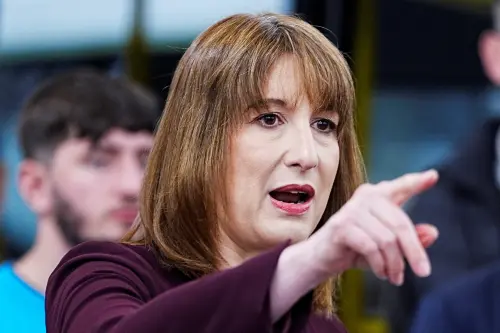Introduction
The British finance minister, Rachel Reeves, is set to allocate over 2 trillion pounds in public funds among her government colleagues, a decision that will significantly shape the Labour government's agenda for the next four years.Context
Prime Minister Keir Starmer and Reeves must balance competing demands from various sectors, including the public health service, which commands 40% of day-to-day departmental spending, against increased defense commitments and other vital areas such as policing, energy infrastructure, transport, and housing.At an event promoting a 16 billion pounds investment in regional public transport, Reeves indicated the tough choices she faces, stating, "There are good things I have had to say no to."
Labour emphasizes growth as its priority, positioning the UK as the fastest-growing country in the Group of Seven during the first quarter of 2025. However, the IMF predicts slower growth for the UK compared to the United States and Canada in the coming years, with growth only slightly exceeding that of the euro zone.
Developments
The timing of the spending review is critical, as the government, which secured a substantial parliamentary majority in July 2024, has seen its popularity decline, notably trailing behind the right-wing Reform Party in recent local council elections.In a bid to improve public perception, the government is partially restoring heating subsidies for pensioners that had been removed shortly after the election, a move seen as crucial for regaining support.
Reeves outlined the framework of upcoming spending plans during her first budget presentation in October, suggesting that major surprises for financial markets are unlikely, although specific sectors may experience varying impacts.
According to the Institute for Fiscal Studies, day-to-day public service spending is expected to rise by 1.2% annually above inflation between 2026-27 and 2028-29, while capital budgets are projected to grow by 1.3% in real terms through 2029-30. These growth rates are significantly slower compared to the current financial year, which anticipates an 11.6% surge in investment spending and a 2.5% increase in current spending.
However, the distribution of these increases will not be uniform. Defence spending plans set to reach 2.5% of GDP, announced by Starmer in February, will limit real-terms increases for other departments.
On the day-to-day spending front, if the health budget is increased by 2 percentage points above the average—reflective of Labour's historical approach to funding—it would lead to 1% cuts in real terms for other departments.
The opposition Conservative Party has criticized Reeves' spending strategy, claiming it could increase debt interest costs by 80 billion pounds by the next election in 2029.
Labour members are expressing concerns regarding potential budget squeezes. Florence Eshalomi, who chairs the housing and local government committee, urged Reeves to align spending allocations with the goal of constructing 1.5 million homes by 2029, as per their manifesto.
Chris Curtis, who leads a faction of Labour MPs focused on economic growth, emphasized the need for long-term solutions rather than immediate fixes. He warned that neglecting growth would lead to stagnation of public services and living standards.
Businesses and investors are attentive to how Reeves will manage the budgetary constraints. She has maintained that tax increases are off the table, intending to limit changes in tax policy to once a year, which restricts her ability to borrow further while adhering to fiscal rules.
This spending review is notably “zero-based,” suggesting potential cuts in various public expenditure areas. However, reductions may occur through diminishing the number of civil servants or tightening public-sector wages, rather than clear efficiency improvements.
Yet, if departments are required to implement unprecedented efficiency gains, future tax increases could become unavoidable. Deutsche Bank's Raja anticipated that Reeves might have to announce between 10-15 billion pounds in tax increases in her upcoming budget next autumn, labeling them as "inevitable."
